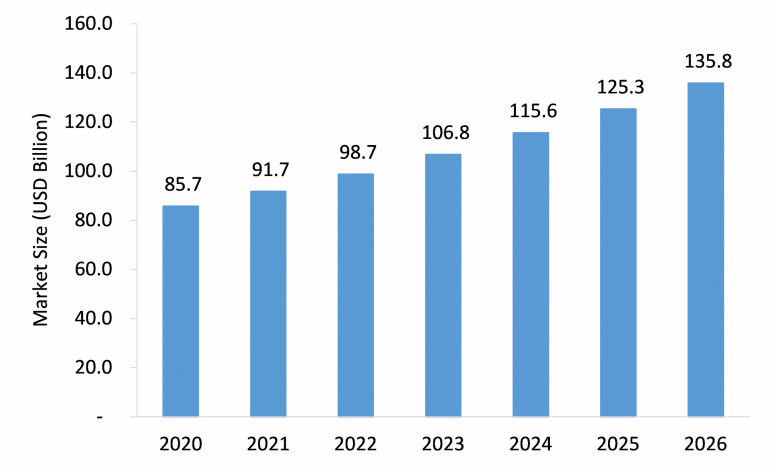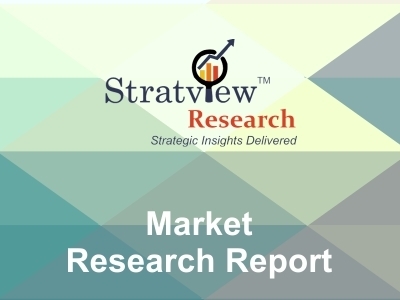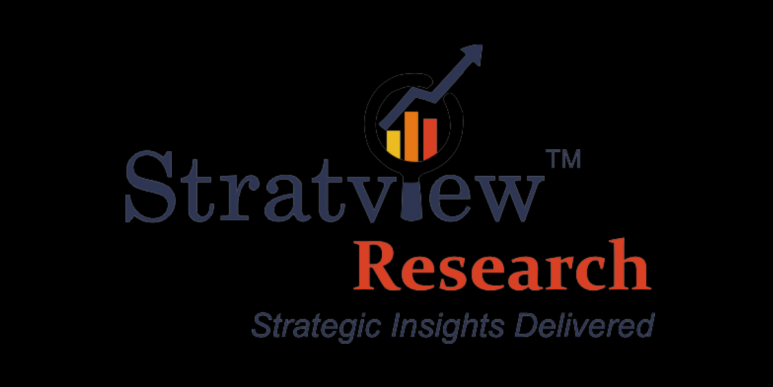Covid-19 Impact on Immunology Drug Market to Witness Growth Acceleration During 2021-2026

The report on the Immunology Drug Market is segmented By Drug Type (Monoclonal Antibodies (mAb), Antibody Drug Conjugates, Interferon and Cytokine therapies, Immunosuppressive medication), By Application (Hospitals, Clinics, Cancer Research Centers and Institutes), and Region The historic years considered for the study are 2016-2019, base year is 2020, estimated year is 2021, and forecast period is 2021-2026.
Market Insights
The Immunology Drug market is projected to grow from USD 85.7 billion in 2020 to USD 135.8 billion by 2026 at a CAGR of around 8.2% during the forecast period.
Key players
Some of the major players operating in the global Immunology Drug Market are-
- Pfizer Inc. (U.S.)
- F. Hoffmann-La Roche Ltd. (Switzerland)
- AbbVie, Inc. (U.S.)
- Bristol-Myers Squibb Company (U.S.)
- Merck Sharp & Dohme Corp. (U.S.)
- Novartis AG (Switzerland)
- Janssen Global Services, LLC (U.S.)
- Amgen Inc. (U.S.)
- Astellas Pharma Inc. (Japan)
- UCB SA (Belgium)
Report Features
The report provides critical insights into the market dynamics that enables strategic decision making that is critical to the growth of the existing players as well as those planning to enter the market. This report offers an improvised approach to consolidate the growth decisions by covering the following features –
- Market structure - as it reflects the value chain of different commodities in the market.
- Drivers and Constraints - as both can affect any element of the marketing mix -- product, budget, and place, etc.
- Market Forecast - a part of the decision-making process. This helps users with facts regarding projected sales dimensions, costs, market shares, and other areas of planning.
- Competitive landscape and dynamics: The user can determine the strengths and gaps. The information mentioned here will work towards enhancing the brand's strategy.
- Growth strategies - allowing a small business to survive unexpected changes, and to grow into a bigger entity, and gain a greater competitive advantage.
Market Dynamics
The report covers maximum factors that affect the Immunology Drug Market. According to this report,
The rise in the prevalence rate of various types of cancer and rheumatoid cancer, growing funding from the various government & non-government organizations, and increasing government initiatives, are some of the key factors augmenting the immunology drug market growth. Moreover, patients with poor prognoses are further expected to boost the growth of the immunology drug trial evidence reveals which after preparing the immune system to fight against cancer immunology, drug effects last for a long time even after the reduction of the tumor. However, the high cost of these drugs is likely to hamper industry growth.
Segments' Analysis
Drug Type Trends
By drug type, the immunology drug market has been classified into monoclonal antibodies (mAb), antibody-drug conjugates, interferon and cytokine therapies, immunosuppressive medication. Under these, the monoclonal antibodies (mAb) segment accounted for a significant market share in 2020 and is projected to register significant growth during the review period. This is mainly attributed to the rising number of approvals for mAb by the government bodies to treat chronic ailments across the globe, further fostering segment growth.
Regional Trends
By region, the market in North America accounted for a significant market share in 2020 and is projected to grow at a significant CAGR during the assessment period. This is mainly ascribed to the rising prevalence of chronic ailments, robust healthcare infrastructure, the higher diagnosis rate of the patients, increasing healthcare expenditure, and a large number of home healthcare facilities, which further proliferates the regional market growth.
Critical Questions Answered in the Report
- What are the key trends in the global Immunology Drug Market?
- How the market (and its various sub-segments) has grown in the last five years and what would be the growth rate in next five years?
- What is the impact of COVID-19 on global Immunology Drug Market?
- What are the key strategies adopted by the major vendors to lead in the global Immunology Drug Market?
- What is the market share of the top vendors?
Wish to know more about the study? Click here to get a free sample. https://www.stratviewresearch.com/Request-Sample/2327/Immunology-Drug-Market.html#form
Custom Research: Stratview research offers custom research services across sectors. In case of any custom research requirement related to market assessment, competitive benchmarking, sourcing and procurement, target screening, and others, please send your inquiry at +1-313-307-4176.
About Us –
Stratview Research is a leading global Market Research firm providing expert research solutions, trusted by clients worldwide. This firm possesses a global presence to enable current market information using the most up-to-date methodology, best-in-class research techniques, and cost-effective approaches. It also surveys clients in several countries to provide you with the most comprehensive illustration of global trends and behaviours.
Contact -
Web: https://www.stratviewresearch.com/contact
Email: sales@stratviewresearch.com

